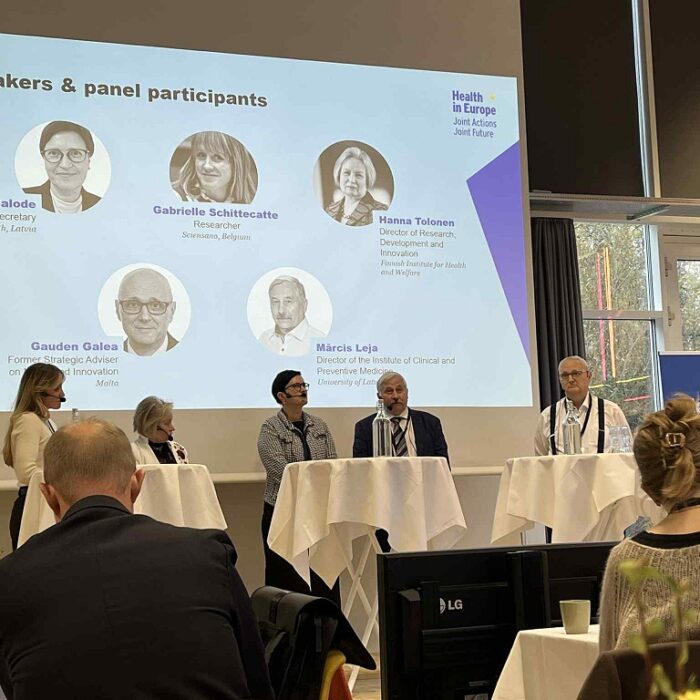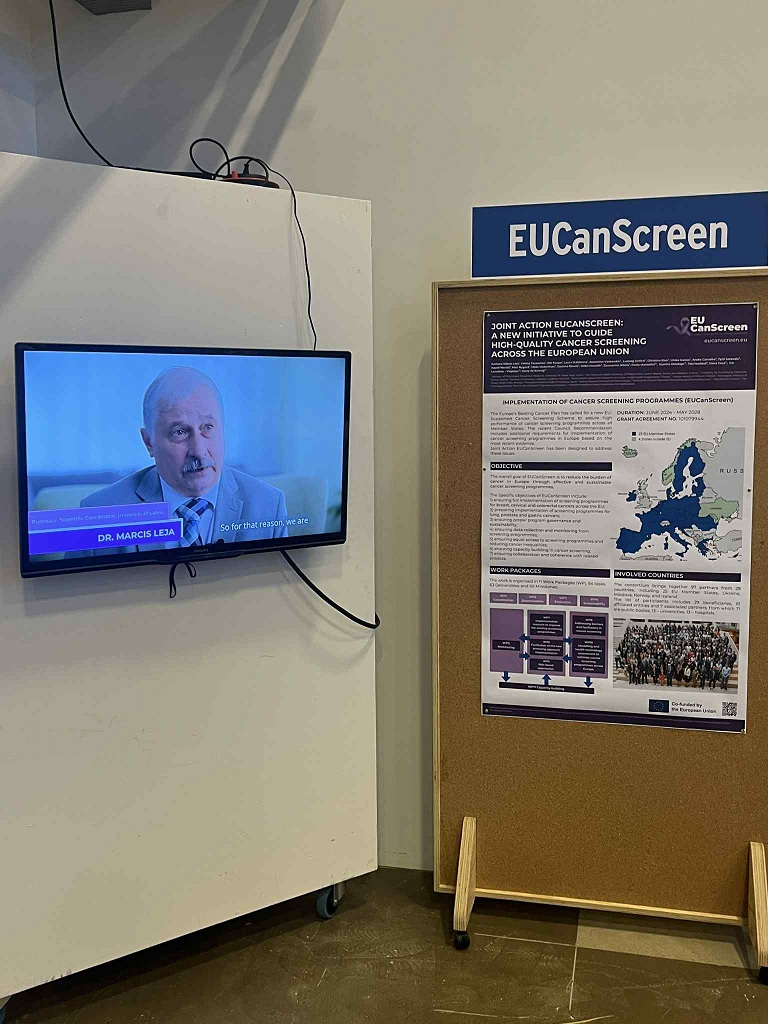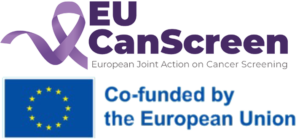Health in Europe: Joint Actions, Joint Future
Denmark hosting European collaboration on health under the EU Presidency

Health in Europe: Joint Actions, Joint Future
We were delighted to host the international event “Health in Europe: Joint Actions, Joint Future” in Denmark as part of the Danish EU Presidency.
Organised by the Region of Southern Denmark in close collaboration with JA PreventNCD, the event gathered leading experts and policymakers from across Europe to exchange insights and ideas on how to strengthen collaboration in public health through EU Joint Actions.
The main focus was on sustainability in EU Joint Actions – exploring how to ensure long-term impact and continuity of the important initiatives launched under the EU4Health programme.
EUCanScreen
Prof. Mārcis Leja, Director of the Institute of Clinical and Preventive Medicine at the University of Latvia, represented EUCanScreen at the event. He took part in a panel debate alongside experts from Latvia, Belgium, Finland, and WHO, discussing mechanisms to succeed with sustainability and how to secure lasting results from collaborative European health projects.

11 Joint Actions
The event brought together 11 Joint Actions, fostering strong synergies and paving the way for future joint strategies within key health areas such as:
- Prevention and treatment of cancer and other non-communicable diseases
- Green and sustainable health systems
- Reducing health inequalities
- Mental health
Together, we are building a healthier and more sustainable Europe – through knowledge-sharing, collaboration, and a shared vision for the future.







